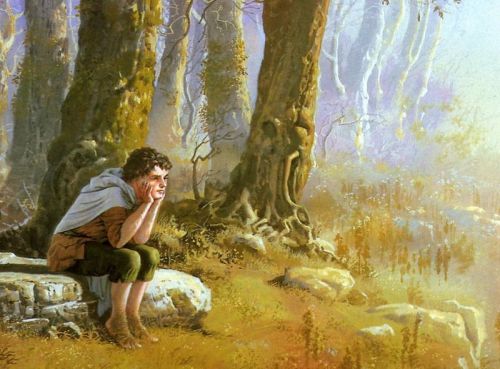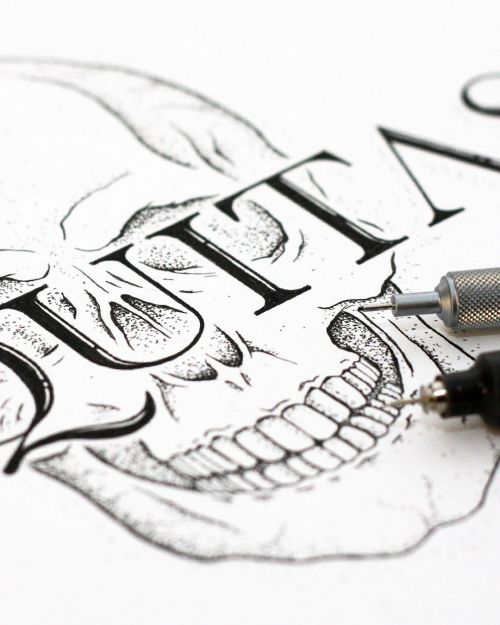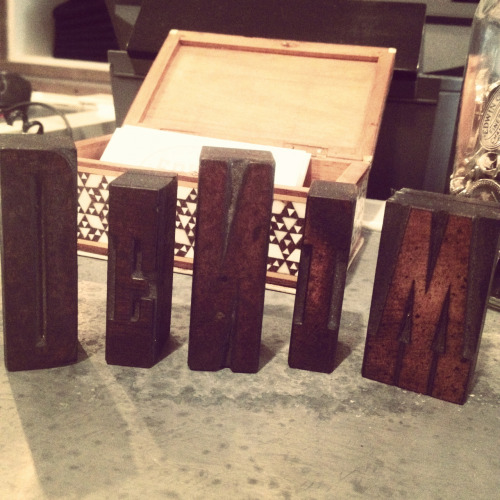#letters

Ashton:*slaps FCG’s shoulder*
“This little aeormaton can fit so much Physical & Emotional Traumain it!”
I do not feel quite ‘real’ or whole, and in a sense there is no one to talk to. (You share this, of course, especially in the matter of letters.) Since I came of age, and our 3 years separation was ended, we had shared all joys and griefs, and all opinions (in agreement or otherwise), so that I still often find myself thinking ‘I must tell Edith about this’ – and then suddenly I feel like a castaway left on a barren island under a heedless sky after the loss of a great ship. I remember trying to tell Marjorie Incledon this feeling, when I was not yet thirteen after the death of my mother (Nov. 9. 1904), and vainly waving a hand at the sky saying ‘it is so empty and cold’. And again I remember after the death of Fr Francis my ‘second father’ (at 77 in 1934), saying to C. S. Lewis: ‘I feel like a lost survivor into a new alien world after the real world has passed away.’ But of course these griefs however poignant (especially the first) came in youth with life and work still unfolding.
In 1904 we (Hilary & I) had the sudden miraculous experience of Fr Francis’ love and care and humour – and only 5 years later (the equiv. of 20 years experience in later life) I met the Lúthien Tinúviel of my own personal ‘romance’ with her long dark hair, fair face and starry eyes, and beautiful voice. And in 1934 she was still with me, and her beautiful children. But now she has gone before Beren, leaving him indeed one-handed, but he has no power to move the inexorable Mandos, and there is no Dor Gyrth i chuinar, the Land of the Dead that Live, in this Fallen Kingdom of Arda, where the servants of Morgoth are worshipped.
J.R.R. Tolkien in a letter to Michael Tolkien on the death of his wife, Edith Tolkien. (Jan 24, 1972)
–The Letters of J.R.R. Tolkien, 332
Post link
“‘I wished to be loved by another,’ she answered. 'But I desire no man’s pity.’
'That I know,’ he said. 'You desired to have the love of the Lord Aragorn. Because he was high and puissant, and you wished to have renown and glory and to be lifted far above the mean things that crawl on the earth. And as a great captain may to a young soldier he seemed to you admirable. For so he is, a lord among men, the greatest that now is. But when he gave you only understanding and pity, then you desired to have nothing, unless a brave death in battle. Look at me, Éowyn!’
And Éowyn looked at Faramir long and steadily; and Faramir said: 'Do not scorn pity that is the gift of a gentle heart, Éowyn! But I do not offer you my pity. For you are a lady high and valiant and have yourself won renown that shall not be forgotten; and you are a lady beautiful, I deem, beyond even the words of the Elven-tongue to tell. And I love you. Once I pitied your sorrow. But now, were you sorrowless, without fear or any lack, were you the blissful Queen of Gondor, still I would love you. Éowyn, do you not love me?’
Then the heart of Éowyn changed, or else at last she understood it. And suddenly her winter passed, and the sun shone on her.
‘I stand in Minas Anor, the Tower of the Sun,’ she said; ‘and behold the Shadow has departed! I will be a shieldmaiden no longer, nor vie with the great Riders, nor take joy only in the songs of slaying. I will be a healer, and love all things that grow and are not barren.’ And again she looked at Faramir. 'No longer do I desire to be a queen,’ she said.
Then Faramir laughed merrily. 'That is well,’ he said; 'for I am not a king. Yet I will wed with the White Lady of Rohan, if it be her will. And if she will, then let us cross the River and in happier days let us dwell in fair Ithilien and there make a garden. All things will grow with joy there, if the White Lady comes.’
'Then must I leave my own people, man of Gondor?’ she said. 'And would you have your proud folk say of you: "There goes a lord who tamed a wild shieldmaiden of the North! Was there no woman of the race of Númenor to choose?”’
'I would,’ said Faramir. And he took her in his arms and kissed her under the sunlit sky, and he cared not that they stood high upon the walls in the sight of many. And many indeed saw them and the light that shone about them as they came down from the walls and went hand in hand to the Houses of Healing.“
–J.R.R. Tolkien, The Lord of the Rings: The Return of the King, "The Steward and the King”
“Eowyn: It is possible to love more than one person (of the other sex) at the same time, but in a different mode and intensity. I do not think that Eowyn’s feelings for Aragorn really changed much; and when he was revealed as so lofty a figure, in descent and office, she was able to go on loving and admiring him. He was old, and that is not only a physical quality: when not accompanied by any physical decay age can be alarming or awe-inspiring. Though not a 'dry nurse’ in temper, she was also not really a soldier or 'amazon’, but like many brave women was capable of great military gallantry at a crisis.
I think you misunderstand Faramir. He was daunted by his father: not only in the ordinary way of a family with a stern proud father of great force of character, but as a Númenórean before the chief of the one surviving Númenórean state. He was motherless and sisterless (Eowyn was also motherless), and had a 'bossy’ brother. He had been accustomed to giving way and not giving his own opinions air, while retaining a power of command among men, such as a man may obtain who is evidently personally courageous and decisive, but also modest, fair-minded and scrupulously just, and very merciful. I think he understood Eowyn very well.
…
Criticism of the speed fo the relationship or 'love’ of Faramir and Eowyn. In my experience feelings and decisions ripen very quickly (as measured by mere 'clock-time’, which is actually not justly applicable) in periods of great stress, and especially under the expectation of imminent death. And I do not think that persons of high estate and breeding need all the petty fencing and approaches in matters of 'love’. This tale does not deal with a period of 'Courtly Love’ and its pretences; but with a culture more primitive (sc. less corrupt) and nobler.”
–J.R.R. Tolkien, The Letters of J.R.R. Tolkien, “244” (From a draft to a reader of The Lord of the Rings [A fragment at the top of which Tolkien has written: 'Comments on a criticism (now lost?) concerning Faramir & Eowyn…’.])
Post link
“Frodo undertook his quest out of love–to save the world he knew from disaster at his own expense, if he could; and also in complete humility, acknowledging that he was wholly inadequate to the task. His real contract was only to do what he could, to try to find a way, and to go as far on the road as his strength of mind and body allowed. He did that. I do not myself see that the breaking of his mind and will under demonic pressure after torment was any more a moral failure than the breaking of his body would have been–say by being strangled by Gollum, or crushed by a falling rock.
That appears to have been the judgement of Gandalf and Aragorn and of all who learned the full story of his journey. Certainly nothing would be concealed by Frodo! But what Frodo himself felt about the events is quite another matter.
He appears at first to have had no sense of guilt; he was restored to sanity and peace. But then he thought that he had given his life in sacrifice: he expected to die very soon. But he did not, and one can observe the disquiet growing in him. Arwen was the first to observe the signs, and gave him her jewel for comfort, and thought of a way of healing him. Slowly he fades ‘out of the picture’, saying and doing less and less. I think it is clear on reflection to an attentive reader that when his dark times came upon him and he was conscious of being 'wounded by knife sting and tooth and a long burden’ it was not only nightmare memories of past horrors that afflicted him, but also unreasoning self-reproach: he saw himself and all that he [had] done as a broken failure. 'Though I may come to the Shire, it will not seem the same, for I shall not be the same.’ That was actually a temptation out of the Dark, a last flicker of pride: desire to have returned as a 'hero’, not content with being a mere instrument of good. And it was mixed with another temptation, blacker and yet (in a sense) more merited, for however that may be explained, he had not in fact cast away the Ring by a voluntary act: he was tempted to regret its destruction, and still to desire it. 'It is gone for ever, and now all is dark and empty’, he said as he wakened from his sickness in 1420.
'Alas! there are some wounds that cannot be wholly cured,’ said Gandalf–not in Middle-earth. Frodo was sent or allowed to pass over the Sea to heal him–if that could be done, before he died. He would have eventually to 'pass away’: no mortal could, or can, abide for ever on earth, or within Time. So he went to both a purgatory and to a reward, for a while: a period of reflection and peace and a gaining of a truer understanding of his position in littleness and in greatness, spent still in Time amid the natural beauty of 'Arda Unmarred’, the Earth unspoiled by evil.”
—J.R.R. Tolkien, The Letters of J.R.R. Tolkien, “246” (Part of his reply to a reader’s comments on Frodo’s failure to surrender the Ring in the Cracks of Doom)
Post link
“In any case a confrontation of Frodo and Sauron would soon have taken place, if the Ring was intact. Its result was inevitable. Frodo would have been utterly overthrown: crushed to dust, or preserved in torment as a gibbering slave. Sauron would not have feared the Ring! It was his own and under his will. Even from afar he had an effect upon it, to make it work for its return to himself. In his actual presence none but very few of equal stature could have hoped to withhold it from him. Of ‘mortals’ no one, not even Aragorn. In the contest with the Palantír Aragorn was the rightful owner. Also the contest took place at a distance, and in a tale which allows the incarnation of great spirits in a physical and destructible form their power must be far greater when actually physically present. Sauron should be thought of as very terrible. The form that he took was that of a man of more than human stature, but not gigantic. In his earlier incarnation he was able to veil his power (as Gandalf did) and could appear as a commanding figure of great strength of body and supremely royal demeanor and countenance.
Of the others only Gandalf might be expected to master him—being an emissary of the Powers and a creature of the same order, an immortal spirit taking a visible physical form. … [However, c]onfrontation of Sauron alone, unaided, self to self was not contemplated. One can imagine a scene in which Gandalf, say, was placed in such a position. It would be a delicate balance. On one side the true allegiance of the Ring to Sauron; on the other the superior strength because Sauron was not actually in possession, and perhaps also because he was weakened by long corruption and expenditure of will in dominating inferiors. If Gandalf proved the victor, the result would have been for Sauron the same as the destruction of the Ring; for him it would have been destroyed, taken from him for ever. But the Ring and all its works would have endured. It would have been the master in the end.“
—J.R.R. Tolkien, The Letters of J.R.R. Tolkien, ”246” (What would have happened in a confrontation with Sauron if Frodo or Gandalf had taken the Ring)
Post link
I dislike the use of ‘political’ in such a context; it seems to me false. It seems clear to me that Frodo’s duty was 'humane’ not political. He naturally thought first of the Shire, since his roots were there, but the quest had as its object not the preserving of this or that polity, such as the half republic half aristocracy of the Shire, but the liberation from an evil tyranny of all the 'humane’*–including those, such as 'easterlings’ and Haradrim, that were still servants of the tyranny.
Denethorwas tainted with mere politics: hence his failure, and his mistrust of Faramir. It had become for him a prime motive to preserve the polity of Gondor, as it was, against another potentate, who had made himself stronger and was to be feared and opposed for that reason rather than because he was ruthless and wicked. Denethor despised lesser men, and one may be sure did not distinguish between orcs and the allies of Mordor. If he had survived as victor, even without use of the Ring, he would have taken a long stride towards becoming himself a tyrant, and the terms and treatment he accorded to the deluded peoples of east and south would have been cruel and vengeful. He had become a 'political’ leader: sc. Gondor against the rest.
But that was not the policy or duty set out by the Council of Elrond. Only after hearing the debate and realizing the nature of the quest did Frodo accept the burden of his mission. Indeed the Elves destroyed their own polity in pursuit of a 'humane’ duty. This did not happen merely as an unfortunate damage of War; it was known by them to be an inevitable result of victory, which could in no way be advantageous to Elves. Elrond cannot be said to have a political duty or purpose.
* humane: this (being in a fairy-story) includes of course Elves, and indeed all 'speaking creatures’.
–J.R.R Tolkien, The Letters of J.R.R. Tolkien, #183
In the first [account of the Second Age (The Rings of Power)] we see a sort of second fall or at least ‘error’ of the Elves. There was nothing wrong essentially in their lingering against counsel, still sadly with the mortal lands of their old heroic deeds. But they wanted to have their cake without eating it. They wanted peace and bliss and perfect memory of 'The West’, and yet remain on the ordinary earth where their prestige as the highest people, above wild Elves, dwarves, and Men, was greater than at the bottom of the hierarchy of Valinor. They thus became obsessed with 'fading’, the mode in which the changes of time (the law of the world under the sun) was perceived by them. They became sad, and their art (shall we say) antiquarian, and their efforts all really a kind of embalming–even though they also retained the old motive of their kind, the adornment of earth, and the healing of its hurts. … There arose a friendship between the usually hostile folk (of Elves and Dwarves) for the first and only time, and smithcraft reached its highest development. But many of the Elves listened to Sauron. He was still fair in that early time, and his motives and those of the Elves seemed to go partly together: the healing of the desolate lands. Sauron found their weak point in suggesting that, helping one another, they could make Western Middle-earth as beautiful as Valinor. It was really a veiled attack on the gods, an incitement to try and make a separate independent paradise. Gilgalad repulsed all such overtures, as also did Elrond. But at Eregion great work began–and the Elves came their nearest to falling to ’magic’ and machinery. With the aid of Sauron’s lore they made the Rings of Power….
–J.R.R. Tolkien, The Letters of J.R.R. Tolkien, 131 (Art by Angus McBride)
Post link
Rr for @eu_characters_project.
•
•
•
#romania #typographydesign #type #letters #R #Rr #customletters #adiorga #europe #eu #inktober #inktober2020 #skate #apparel #bucharest (at Bucharest, Romania)
https://www.instagram.com/p/CFnSQEfgtIT/?igshid=1vldjastr79v5
Post link
Rr for @eu_characters_project. Check the full project out!
•
•
#romania #typographydesign #type #letters #R #Rr #customletters #adiorga #europe #eu #skate #apparel #inktober #sketch (at Bucharest, Romania)
https://www.instagram.com/p/CFnP0CUgR7U/?igshid=vtrqqfg6wo07
Post link
“Killing yourself is a major commitment, it takes a kind of courage. Most people just lead lives of cowardly desperation. It’s kinda half suicide where you just dull yourself with substances.” – R. Crumb.
Post link
Old writers used to be like ohhhh geeee i hope no one finds my private letters. ohhhhh my little letters they’re so beautifully written and personal i hope no one gets a hold of my big stack of personal letters ouhhh
More important than ever. ❤
In the style of an amazing letterer named Stephane Lopes (@stephanelopes). If you’re on Instagram, give him a follow!
Post link

Memento mori

El susurrador, Donato Carrisi





![In the first [account of the Second Age (The Rings of Power)] we see a sort of second fall or at lea In the first [account of the Second Age (The Rings of Power)] we see a sort of second fall or at lea](https://64.media.tumblr.com/827a36b632dd758ee16e61f411595090/tumblr_miqd0svPQd1rtwlb5o1_500.jpg)












